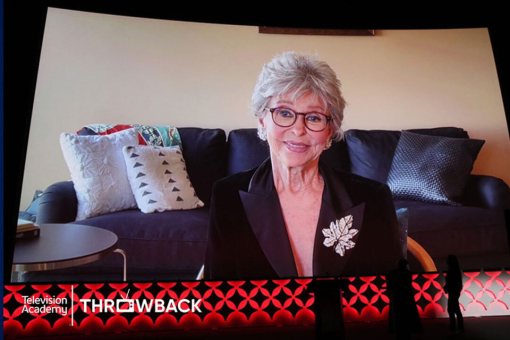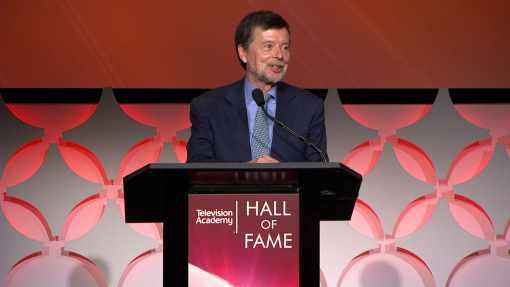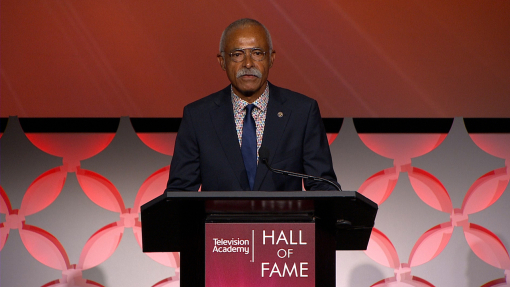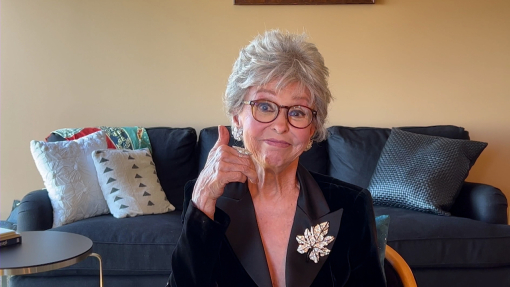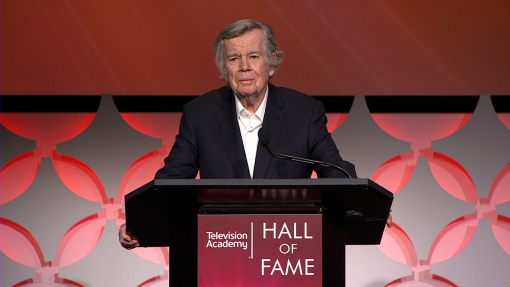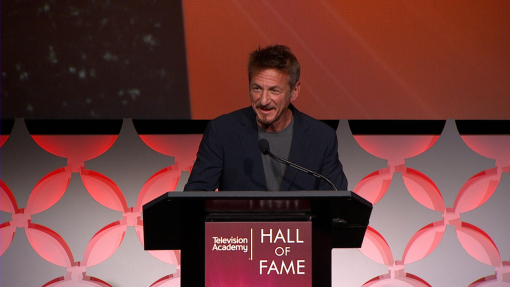Joan felt like a relative of mine. When I was with her, I felt like I was with an older sister or an aunt. You figure, okay, somewhere back in Russia we were all persecuted together. That was our bond.
The first time we met, our conversation went right to the struggles that she went through as a woman and the obstacles she had to overcome in her life. She definitely had her lows, and the way that she punched out of them was so great. She wasn’t going to go backwards and let them happen to her again.
She always had doors closed in her face, and Joan went through cement walls. It’s a hard business. She reinvented herself many times — comeback after comeback. She was an amazing stand-up for 40 years, and she got into hosting home shopping shows and red-carpet coverage.
I would always ask, “Is Joan available to do my benefit?” And her manager would always be like, “She feels really bad that she can’t, because she works every day of the year!” That’s the tenacity that makes an icon. You’re doing it because your destiny is to do it, and to be as great at it as you can be.
On stage, Joan had a pit-bull attitude. You throw a rock at a certain kind of comedian, and they throw a thousand back. Joan was one of those people. If you went after her, she was unrelenting. That was her art form. She was a force to be dealt with.
Once I saw a heckler yell some personal things at her, and she dealt with it really nobly. It was a different Joan. She just went, “What did you say?” The person repeated it, and she said, “That’s not the way you talk to someone,” and she left it at that.
Joan always stayed relevant. A 20-year-old would laugh at her as much as a 60-year-old or 80-year-old. A young person would go to her show and say, “I can’t believe she’s saying that!” That’s what really set her apart.
I’m a guy who’s known for saying things that are out of bounds, but she would talk about celebrities, and I’d say, “You’re really going there?” It was funny to hear that coming from someone who was my senior and I grew up watching on The Ed Sullivan Show. There’s something refreshing about that.
Her jokes were forgivable because they weren’t done out of maliciousness. People keep forgetting you’re supposed to be funny and love people. If you’re making fun of people, you do it with a wink. The main emphasis behind Joan’s existence was to make people laugh.
There’s no formula for comedy. It has to just be in your soul. She was flat-out funny. She was just Joan, and she was a good mom. She and Melissa were beyond close. With all the tragedy she had in her life, she certainly deserved whatever great things could happen for her. I’m just thrilled she’s being respected like this.
She’s greatly missed. I wish she were alive right now. I would enjoy seeing all of the insanity of the world through her point of view. She really was unabashed. She let it all go. She has a hell of a body of work, and she’s a comedy legend. She’ll always be remembered. There will only be one Joan Rivers.
Joan Alexandra Molinsky was born on June 8, 1933 to Russian-immigrant parents in Brooklyn. After attending Barnard College, she worked as a buyer at a department store, but she longed to perform. She spent years toiling as one of the few women doing stand-up at clubs in Greenwich Village, until she finally got a shot on The Tonight Show starring Johnny Carson in 1965 and became an immediate sensation.
For the next half-century, Joan Rivers made us laugh in any number of settings — as a talk-show host, QVC pitchwoman and red-carpet commentator. Along with her beloved daughter Melissa, she starred in her own reality show and co-hosted Fashion Police. She was still going strong when she died at 81 in 2014. Her legacy lives in the cherished memories of fans, family and friends — many of them comedians whom she influenced with her tireless work ethic and fearless commitment to finding humor in almost any topic.
This tribute originally appeared in the Television Academy Hall of Fame program celebrating Joan Rivers's induction in 2017.

